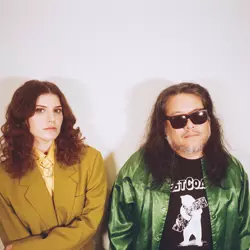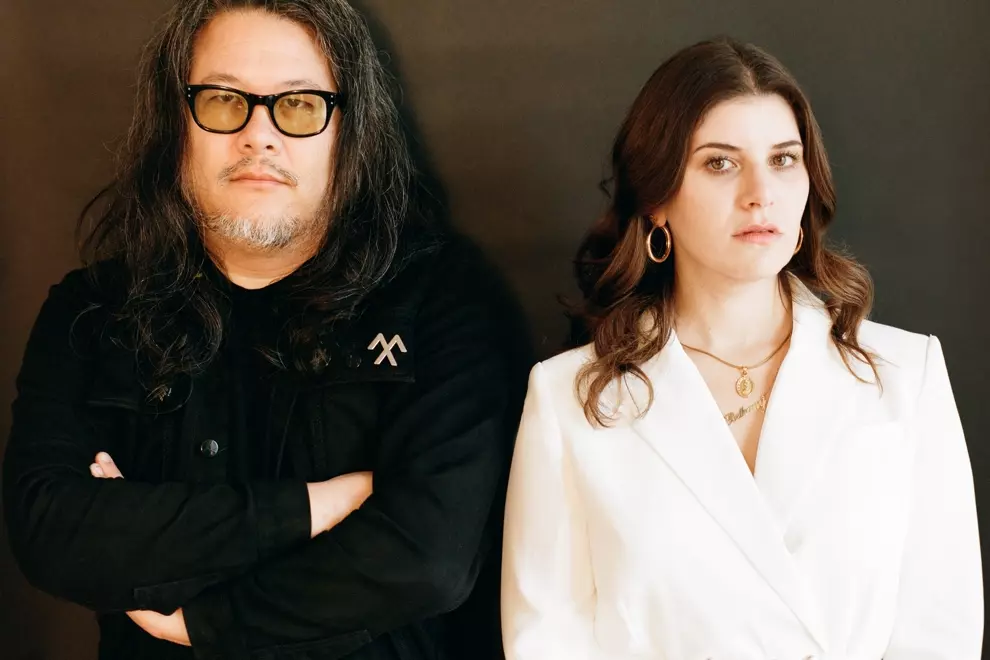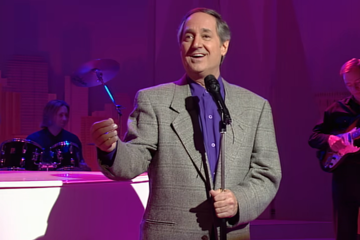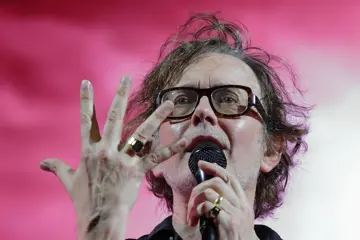 Best Coast
Best CoastThere’s always been an openness and relatability to Best Coast’s music. Whether you're singing “I hate sleeping alone,” in resignation while you drive to that boy’s house (who you swore you’d never see again) or you're just admitting you’re a little bit crazy for someone, Bethany Cosentino’s honest songwriting conveys the messy, lazy, lovely things in life, endearing the band to so many, for so long.
The band's new album, Always Tomorrow, is their first, for adults, in five years – and the first since Cosentino decided to get sober in 2017, following her break-up with Wavves' Nathan Williams. “I really had no idea if Best Coast would make another record,” Cosentino tells us from her kitchen in California. “I knew I wanted to, but I didn't know if it would happen. Or when it would happen. I just knew that in order to keep doing anything I needed to push the pause button and just take care of myself. I was willing to risk a lot of stuff to just be like, ‘Yo, I can't live this way anymore, and I gotta figure this shit out.’
“I mean, I think it was just like, I learnt how to listen to myself... and I did,” Cosentino continues. “It's weird. It's really weird. I can't even really put it into words because it was just like all of a sudden this light switch went off and it was like, ‘Bethany you have to change like, something has to change. Your life isn't working for you anymore.’”
Cosentino started going to therapy and carving out “a lot of the childhood trauma”: “Just shit that I was dealing with on a daily basis like being an only child and coming from a divorce. A lot of stuff was like deep in there and I was writing about it but I wasn't really hearing my own message,” she says.
The resulting album grapples with the concept of second chances. It finds solace in not having your shit together, and "resolution" in acceptance.
Don't miss a beat with our FREE daily newsletter
“This record stands out from all of our other records because I think the last records I wrote very much about how I'd never felt good,” she admits. “It was very, ‘I don't know how to get out of my own head.’ There was a lot of the same – a lot of the same topics and a lot of the same sort of things because I didn't know anything else. So I think with this record it feels like there's a resolution in the sense that I've learnt how to accept that.
“I'm always gonna run into these issues because I'm a human being and I'm not a robot and I'm not a Zen Buddhist monk,” Cosentino laughs. “Like, I can't achieve that level of acceptance. But what I can achieve is the level of acceptance that's like the record says: there is always tomorrow."
"It was like, ‘Bethany you have to change, like, something has to change. Your life isn't working for you anymore.’”
"Whether it means [a chance] to do things better, whether it means to fuck up again, whether it means to fuck up for the first time”, the promise of 'tomorrow' permeates the record. “I think, throughout the last several years, I've really learnt how to live in acceptance,” she says. “To live in this place where sometimes I have to just let go of things and be like, ‘Ok, I gotta go to sleep. Hopefully tomorrow, it'll be better. It'll be easier. Maybe it'll be worse. I have no control over what happens then because it hasn't even happened yet.’”
Cosentino concedes “the world is really fucked up still”, but tries not to reside too much in “cheesy positivity” as a counterpoint. It's just about “learning to do what [she] can in a day and then let the next day come because it always will", she says.
2020 marks ten years since Best Coast released their debut album, Crazy For You. “It's really cool and it's really special because at the start of the decade I didn't know what I was doing, or how to trust myself or where I was going. I was just a college dropout writing songs in a bedroom,” she laughs.
“It's funny, my best friend lives out in San Francisco and I was going to visit her and I was driving home and Crazy For You had just turned nine years old. I was driving home from the Bay and I put the record on. I never listen to my own music, but I was just like, ‘Oh, ok, it just turned nine years old, I want to listen to it.’”
It was the first time Cosentino says she really listened to her own lyrics and heard the pain she was going through at the time: “For me to be able to listen to my 22-year-old self whining and crying about a boy and about my anxiety and all these things I was going through, to be able to listen to that and put my hands on my heart and say, ‘It's all gonna be ok, little Bethany,’ that's a big thing for me. I used to not know how to feel compassion for myself.”
A message of compassion for oneself is what she hopes people take from the new album. “We are fully capable of becoming the masters of our own mind,” she says emphatically, referencing a song off the upcoming release. “We can choose to live in hopefulness or we can choose to live in the darkness. I think this record really shows the journey of a girl who went from living fully in the darkness and living in the black and white to living now in a zone where I try really hard to just accept things for what they are... You know, growth and change are possible. You just have to really be willing to work for it. And it sucks, like doing the work sucks. It's hard. It's exhausting. But it's also like, the results are so very worth it.”
















